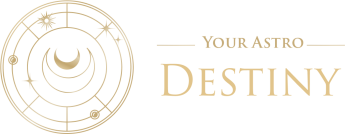Body:
Astrology, an ancient practice and philosophy expressed through celestial narratives, insights, and implications, plays an influential role in our understanding of life, humanity, and the universe itself. One specific facet of astrology that sparks much debate is Archetypal Astrology, which emphasizes the vital interconnectivity between individual behavior and cosmic principles. This article leverages insights from Astrology University’s article on Archetypal Astrology and Free Will to deliver a cohesive exploration of the subject.
The first significant point to home in on is the essence of archetypal astrology. Often mistaken for a deterministic or fatalistic approach, archetypal astrology isn’t about predetermination but the exploration of the underlying archetypes, rhythms, and patterns observable in life events, personal experiences and the broader cosmos. It focuses on understanding these archetypes as evocative and suggestive influences that may shape our perception and actions, rather than constrictive, predetermined paths.
Fundamentally, archetypal astrology posits that the cosmos does not compel, but impel. It communicates a correlation, not causation, between celestial phenomena and human experiences. The exploration of this correlation allows astrologers and seekers alike to engage more perceptively with life’s unfolding patterns and rhythms. It’s a stage for interpreting the deep structures of existence and the interplay between free will and cosmic influence.
Free will revolves around the notion that individuals can control their actions and decisions without being subject to predetermined fate or divine intervention. In the context of archetypal astrology, free will pairs with the understanding of cosmic patterns, enabling individuals to navigate their life journey with enhanced lucidity and awareness. By recognizing the archetypal influences at play, individuals can exercise their free will more effectively and responsively in life situations.
Looking at archetypal astrology and free will through the lens of various theoretical and philosophical perspectives fortifies the discourse on this topic. The philosophical perspective views the universe as a participatory cosmos, where humans, as conscious agents, participate in an unfolding cosmic narrative through their free will.
On the other hand, Depth psychology, pioneered by Carl G. Jung, resonates deeply with archetypal astrology. It discerns the archetypal images and myths that populate our collective unconscious. These images, though universally present, surface differently in different individuals, pushed forth by various external factors. It provides the language and methodology to interact with these dynamic forces challenging and supporting our free will.
Lastly, physics brings forward the principle of ‘unified field theory,’ which stipulates that everything is interconnected. It consolidates astrology with its recognition of invisible connections that permeate existence. Archetypal astrology, in this aspect, telescopes the interconnected patterns in human experiences and celestial events, amplifying the dialogue between human free will and cosmic influence.
All in all, the discourse on archetypal astrology and free will emphasizes the human capacity to understand, respond, and participate in the unfolding cosmic narrative actively and consciously. It underscores the harmonious and dynamic interplay between celestial influences and human free will, shaping the tapestry of human existence and experience.














